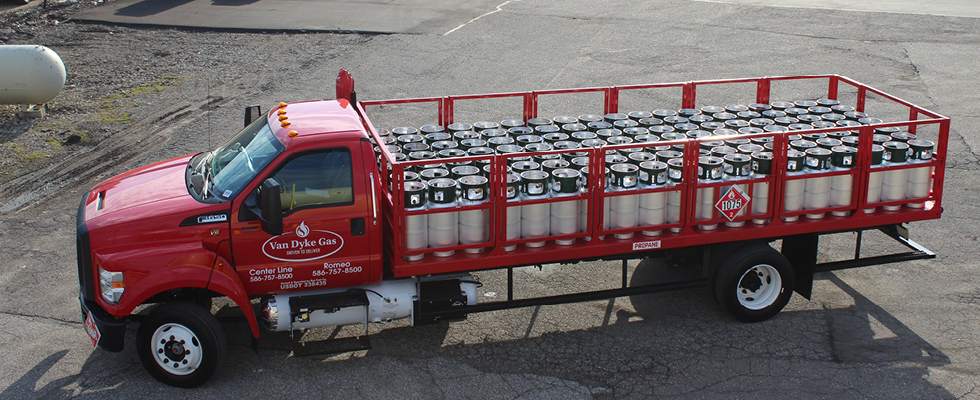
The transportation and energy industries are at a turning point. Propane autogas has proven to be a strong alternative fuel for fleets in our nation. However, to fully realize this market’s potential, we need more than just new fuel technology. We need collaboration. Strategic propane autogas fleet partnerships between propane marketers, fleet operators and fuel system manufacturers help build out the “dream team” for creating win-win arrangements and encouraging the use of propane as a reliable, proven and readily available transportation fuel.
This deep collaboration will drive the sales of both propane autogas and the vehicles that run on it. Propane marketers possess knowledge in fueling and infrastructure, while propane fuel system manufacturers have expertise in their technology. Fleet operators, on the other hand, while not necessarily on top of all of the ins and outs of alternatives to gasoline and diesel, know their businesses down to the mile.
It’s a simple equation: The more vehicles that run on propane autogas equals the more gallons of propane sold.
Advantages of Propane Autogas Fleet Partnerships
Fleets are dealing with many challenges, from environmental initiatives to technology not yet ready for prime time. Diesel trucks are being phased out in many sectors and the steps to environmental compliance are costly and complicated. While electric vehicles (EVs) show promise, they are not yet suitable for the heavy demands of Class 4-7 vocational trucks and buses.
However, fleet operators may not have the resources — or time — to manage new fueling systems or grasp the broader benefits of switching to propane. This is where propane marketers play a vital role, because they are the boots on the ground. Their understanding of how the available propane fueling systems are a smart business solution makes them a valuable partner to fleet operators.
By building trust, educating fleet operators and serving as consultants, propane providers can become essential for the enduring success of fleets. The reward? A loyal customer base.
Investing in these partnerships is a long-term commitment, not a quick win. Propane marketers should consider themselves as trusted advisors in creating a foundation for lasting, mutually beneficial relationships.
Long-Term Mindset for Growth
According to motorsports legend and founder of Roush Industries, Jack Roush, building customer relationships is about sustained engagement: “It is a marathon and not a sprint.” This shifts the focus from one-time sales to long-term customers. Propane marketers must embrace a mindset that prioritizes trust and value over time.
What does this mindset look like in practice? It means investing in fleet success. Support fleets beyond their initial purchase with ongoing advice, training and data-driven insights. Be the trusted resource and stay updated on original equipment manufacturer (OEM) offerings, advancements in autogas technology and industry success stories. When fleet operators see you as a reliable expert, they’re more likely to return.
Organize ride-and-drives, demos and tours. Share customer testimonials to provide information straight from their peers. This helps instill confidence in the viability of propane autogas. Ask propane fuel system manufacturers or OEMs if they have case studies they can share. These initiatives highlight both your product’s value and your commitment to fleet success.
Propane Marketers Take the Lead
Propane marketers have a unique ability to close crucial knowledge and operation gaps for fleet operators. Here’s how you can strengthen your role as a strategic partner in today’s competitive autogas markets:
- Master the propane autogas landscape. Deepen your understanding of propane autogas infrastructure, fueling choices and maintenance needs. Knowing the technology behind autogas systems and where to ask questions allows you to address fleet concerns and also build credibility right away.
- Implement propane autogas internally. One of the fastest ways to earn credibility with potential customers is to use propane autogas within your own fleet. Fleet directors look to their propane marketers for real proof of expertise. Operating propane-powered bobtails, service trucks or cylinder delivery trucks demonstrates your confidence in the technology.
- Provide next-level customer service. Set yourself apart by offering ongoing support. From helping with diagnostics and repairs to providing proven infrastructure options, your readiness to go the extra mile will keep you ahead of competitors. Having trained technicians on your team ensures customers transition smoothly to propane autogas.
- Invest in your team. Make sure all employees feel confident talking to fleet operators about the benefits of propane autogas. Give them the tools and training they need — whether that’s tapping into resources from the Propane Education & Research Council or partnering with OEMs. When the team understands both the environmental and economic advantages of propane, they’ll be able to speak with clarity and credibility. A well-informed team builds trust and strengthens your service offering.
Position Your Business for Autogas’ Future
Now is the time for propane to expand as a vehicle fuel. Moving forward and seizing this opportunity requires teamwork and a customer-focused approach. Here are some steps you can take today:
- Attend factory workshops or ride-and-drives to learn about propane autogas from fuel system manufacturers.
- Use propane vehicles in your own fleet to lead by example.
- Join local pilot programs for schools or government agencies to highlight propane autogas success stories in your area.
- Engage with customers and gain a solid understanding of their motivations and priorities. Then, use your industry expertise to educate them.
Fleets are ready to switch to propane, but it’s our responsibility as an industry — and a team — to guide them on that path. Collaboration, education and a consistent focus on long-term success will make propane autogas the nation’s top choice for transportation.
For propane marketers, the path forward is clear. Will you be a partner to your customers or just another vendor?


